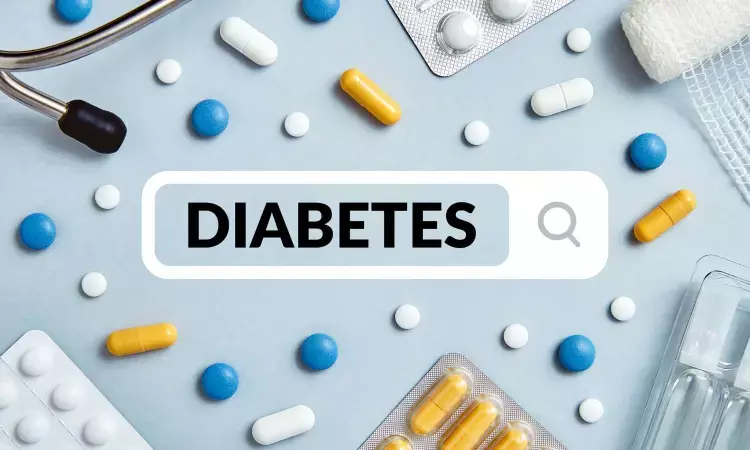- Home
- Medical news & Guidelines
- Anesthesiology
- Cardiology and CTVS
- Critical Care
- Dentistry
- Dermatology
- Diabetes and Endocrinology
- ENT
- Gastroenterology
- Medicine
- Nephrology
- Neurology
- Obstretics-Gynaecology
- Oncology
- Ophthalmology
- Orthopaedics
- Pediatrics-Neonatology
- Psychiatry
- Pulmonology
- Radiology
- Surgery
- Urology
- Laboratory Medicine
- Diet
- Nursing
- Paramedical
- Physiotherapy
- Health news
- Fact Check
- Bone Health Fact Check
- Brain Health Fact Check
- Cancer Related Fact Check
- Child Care Fact Check
- Dental and oral health fact check
- Diabetes and metabolic health fact check
- Diet and Nutrition Fact Check
- Eye and ENT Care Fact Check
- Fitness fact check
- Gut health fact check
- Heart health fact check
- Kidney health fact check
- Medical education fact check
- Men's health fact check
- Respiratory fact check
- Skin and hair care fact check
- Vaccine and Immunization fact check
- Women's health fact check
- AYUSH
- State News
- Andaman and Nicobar Islands
- Andhra Pradesh
- Arunachal Pradesh
- Assam
- Bihar
- Chandigarh
- Chattisgarh
- Dadra and Nagar Haveli
- Daman and Diu
- Delhi
- Goa
- Gujarat
- Haryana
- Himachal Pradesh
- Jammu & Kashmir
- Jharkhand
- Karnataka
- Kerala
- Ladakh
- Lakshadweep
- Madhya Pradesh
- Maharashtra
- Manipur
- Meghalaya
- Mizoram
- Nagaland
- Odisha
- Puducherry
- Punjab
- Rajasthan
- Sikkim
- Tamil Nadu
- Telangana
- Tripura
- Uttar Pradesh
- Uttrakhand
- West Bengal
- Medical Education
- Industry
Exposure to Phthalate metabolites associated with higher incidence of diabetes in women

Phthalates are chemicals widely used in plastics such as personal care products, children's toys, and food and beverage packaging.
Researchers have found in a new study that metabolites of Phthalates or endocrine-disrupting chemicals (EDCs) in plastics may contribute to diabetes risk in women.
The study has been published in the Endocrine Society’s Journal of Clinical Endocrinology & Metabolism.
"Our research found phthalates may contribute to a higher incidence of diabetes in women, especially White women, over a six-year period,” said Sung Kyun Park, Sc.D., M.P.H., of the University of Michigan School of Public Health in Ann Arbor, Mich. “People are exposed to phthalates daily increasing their risk of several metabolic diseases. It’s important that we address EDCs now as they are harmful to human health.”
The researchers studied 1,308 women from the Study of Women’s Health Across the Nation-(SWAN) over six years to see if phthalates contributed to incident diabetes in this population. About 5% of the women developed diabetes over six years. These women had concentrations of phthalates in their urine similar to middle-aged women in the U.S. in the early 2000s, when the urine samples were collected. White women exposed to high levels of some phthalates had a 30-63% higher chance of developing diabetes, while the harmful chemicals were not linked to diabetes in Black or Asian women.
The other authors of this study are Mia Q. Peng, Carrie A. Karvonen-Gutierrez and Bhramar Mukherjee of the University of Michigan School of Public Health; and William H. Herman of the University of Michigan School of Public Health and the University of Michigan Medical School in Ann Arbor, Mich.
The study received funding from the National Institutes of Health, the SWAN Repository, the National Center for Research Resources and the National Center for Advancing Translational Sciences.
“Our research is a step in the right direction towards better understanding phthalates’ effect on metabolic diseases, but further investigation is needed,” Park said.
Reference:
Mia Q Peng, Carrie A Karvonen-Gutierrez, William H Herman, Bhramar Mukherjee, Sung Kyun Park The Journal of Clinical Endocrinology & Metabolism, dgad033, https://doi.org/10.1210/clinem/dgad033
Dr Kamal Kant Kohli-MBBS, DTCD- a chest specialist with more than 30 years of practice and a flair for writing clinical articles, Dr Kamal Kant Kohli joined Medical Dialogues as a Chief Editor of Medical News. Besides writing articles, as an editor, he proofreads and verifies all the medical content published on Medical Dialogues including those coming from journals, studies,medical conferences,guidelines etc. Email: drkohli@medicaldialogues.in. Contact no. 011-43720751


